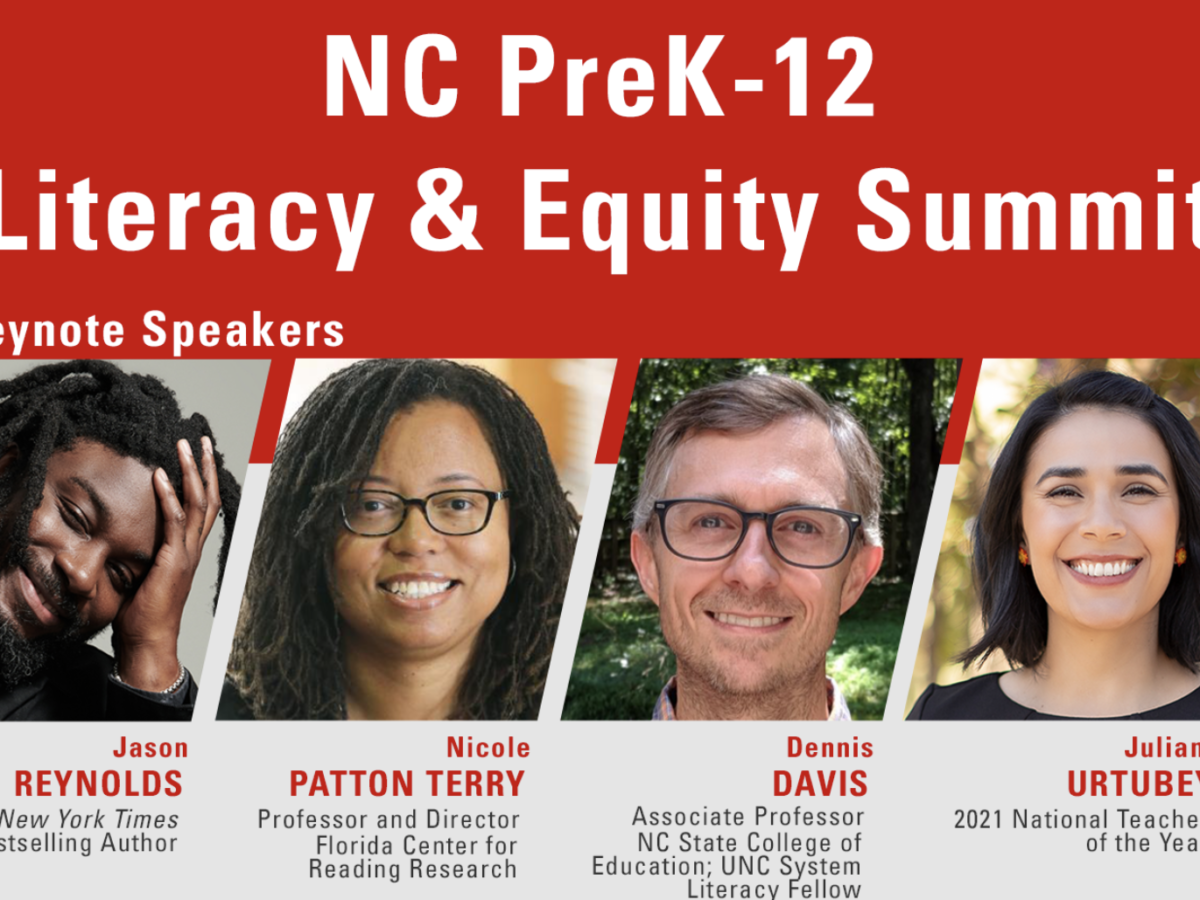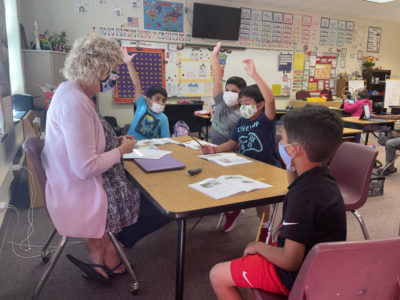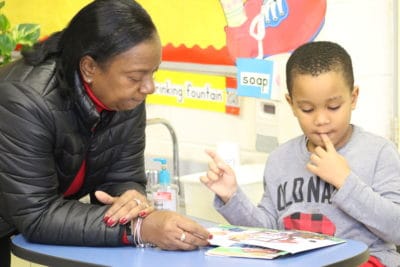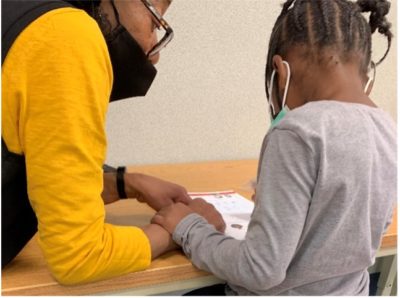
|
|
While I was speaking at a literacy convening of education leaders from six states, someone asked a question that stumped me: How can we prevent conversations about the science of reading from becoming as divisive as conversations about equity in our schools?
My first thought was that literacy is equity. Division around either of these is division around both.
While we hear from many state leaders that equity is a priority, we also see actions that threaten advancing the cause. Equity doesn’t spring forth from prose – it’s a mindset that must be practiced. It’s an issue riddled with nuance and stalled by a failure to try to understand what those with lived experiences are saying.
It’s not so different with literacy. After all, my second thought upon hearing the question was: Aren’t conversations around the science of reading already divisive? That’s what I’ve experienced since I started reporting on it, along with a failure to fully explore the nuance of the science and a failure to reach for understanding of those with lived experiences.
We’re going to take on all of that at the N.C. PreK-12 Literacy & Equity Summit. We want to have a series of conversations with subject matter experts on a broad range of literacy issues, with equity as a centering force in each of these talks. I’m honored that the Friday Institute for Educational Innovation asked me to serve on the organizing committee. I hope anyone who cares about literacy and equity will join us and the more than 1,200 others who have registered for this free event.
This summit is a conversation about reaching for all of what works and doing so inclusively and equitably. It’s about the nuance of what science knows and doesn’t, the tension between needing to improve instruction and the incredible toll on teachers who are undertaking the work. It’s a conversation about word recognition and language comprehension, as well as the love of reading, representation, and community engagement. It’s a conversation about how to reach students who learn differently and multilingual students.
Register Here
The scientific reading research is expansive, even though it’s not yet complete. A new direction in literacy instruction is not just about the things we weren’t doing well enough or getting rid of things that were hurting. It includes continuing to do the things that were working, and reaching for ways to do them better — things like engaging readers and building connections to books to foster a love for reading.
Exposure and love for books won’t teach kids how to read words and sentences. But while we implement reading instruction that will teach them to read well, let’s not abandon the importance of engagement.
You’ll see our commitment to nuance throughout the agenda. It’s why we chose our opening keynote, a best-selling author and ambassador for youth literacy – Jason Reynolds. Reynolds isn’t going to talk about the simple view of reading or how to build fluency and vocabulary. He’s going to talk about why, even though he had been taught how to, he wasn’t interested in reading for most of his youth. And he’s going to share what happened that invited him into the world of books.
You’ll hear echoes from that keynote in breakout sessions about engaging families and communities, as well as the importance of selecting diverse texts.
But the science is important. It’s paramount, really — learning to decode and building language comprehension skills is the very formula for comprehending what one reads. And being able to read well is a prerequisite to falling in lifelong love with books.
That’s why we have an afternoon keynote with academic researchers talking about the science of reading, grounded in equity. We also have breakouts with experts on how the scientific research supports multilingual learners and students with learning differences.
Several sessions aim to support educators. Shifting instructional practice statewide can’t be easy for them as the pandemic makes hard situations even harder. But the science of reading is not a program or curriculum. It depends on teacher knowledge and agency. That means we have a duty to provide teachers with robust training.
While colleges of education in our state are working to bolster this knowledge for future teachers, there are many already in classrooms who never got it. They’ve learned a lot about what works by doing, but it’s undeniable that the prevalent approach over the last several years leaned on curricula that promoted some poor practices.
Sign up for the EdDaily to start each weekday with the top education news.
The state’s mandate that every teacher from pre-K through fifth grade must complete a two-year, eight-unit professional development training is a massive financial investment – and it’s also a massive ask of educators already struggling to find time for all we demand.
Still, as challenging as it may be, every year we fail to help tens of thousands of students to read proficiently. That takes a toll, too – on student mental health and self-esteem, on their ability to function in society, on their ability to think critically about new information, and on their ability to make a living. For kids like me, who grew up in unpredictable homes, it robs them of a place to escape and find hope.
There’s no time to wait if we want students to access and enjoy all that reading offers.
The Department of Public Instruction, Department of Health and Human Services, and UNC System are partners in this summit. Their leaders organized several sessions to talk about support for educators as they embark on this journey.
We’ve also invited district leaders to share how they’ve navigated these increased demands, both before starting LETRS training and after. We’re also tackling issues related to birth-through-3 years old and middle school onward.
There’s no magic wand that will turn a hard situation suddenly into an easy one. There’s room, however, to talk about how to ease the load on educators doing this necessary work.
That’s why we’re closing the summit with a keynote by Juliana Urtubey, the 2021 National Teacher of the Year. North Carolina educators will join her to talk about their experiences in pursuit of a “joyous and just literacy education for all.”
This summit is a conversation about reaching for all of what works and doing so inclusively and equitably for each and every student. It’s about the nuance of what science knows and doesn’t, about the tension between needing to improve instruction and the incredible toll on teachers who are undertaking the work. It’s a conversation about word recognition and language comprehension, as well as the love of reading, representation, and community engagement. It’s a conversation about how to reach nearly every student — with an emphasis on kids who learn differently and multilingual students.
We can’t just focus on some of these things, because the path to success is paved with attention to all of them. And we can’t mandate, implement, or practice these things in silos. We need to talk and listen. The state won’t fully implement its science of reading law before spring 2024. This is a two-year investment before it’s fully in place, so we need to stay adaptable, responsive, and committed.
The NC PreK-12 Literacy & Equity Summit isn’t the first conversation EdNC has engaged in about this, and it won’t be the last. I hope we’ll have future conversations about school-based literacy coaches, teacher assistants, and what it means to treat teachers as professionals while we invest in them with professional development.
Until then, join us in a conversation about what’s required and how we can support those who must do the work. When things are hard, we tell our students to talk to us about it. We tell them to look to us for help. I hope we’ll treat the adults serving our children the same way, because we can’t get it done without them.
Recommended reading




